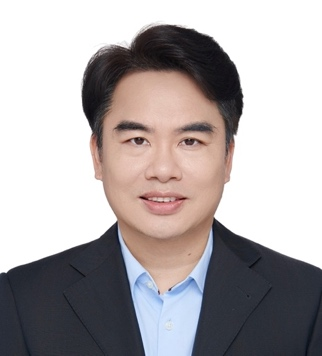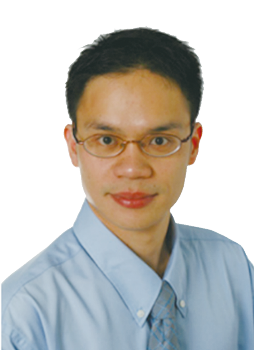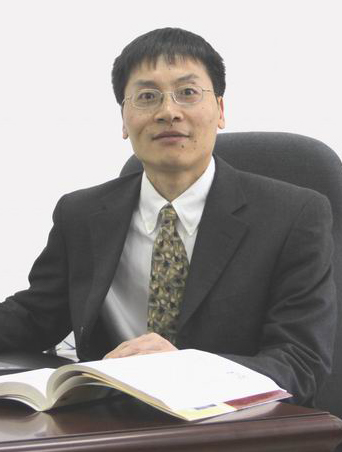
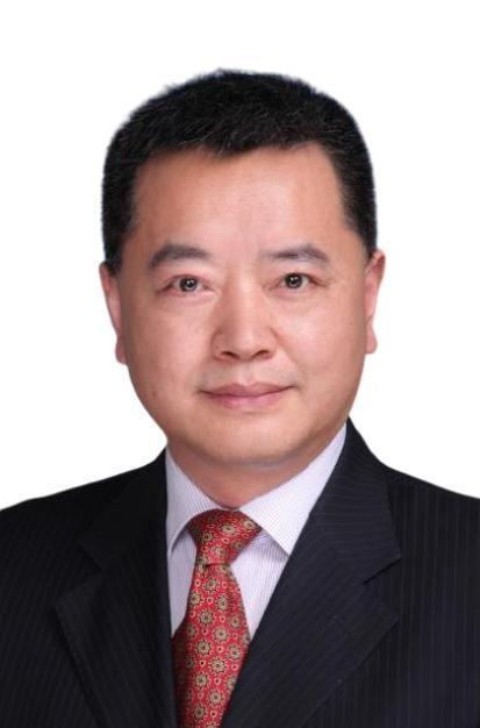 | Prof. Xianbin CaoBeihang UniversityIEEE Senior MemberCao Xianbin is a national science and technology leader, and a young and middle-aged science and technology innovation leader of the Ministry of Science and Technology. He is now the dean, professor and doctoral supervisor of the School of Electronic Information Engineering of Beijing University of Aeronautics and Astronautics. He is also the director of the Avionics and ATC Branch of the Aviation Society of China, deputy director of the National Engineering Laboratory of Comprehensive Transportation Big Data Application Technology, director of the Key Laboratory of the Ministry of Industry and Information Technology of Airborne Information System, member of the Cognitive Computing Technical Committee of the IEEE SMCS, associate editor and editorial board member of the journals of the IEEE Transactions on Network Science and Engineering, Neurocomputing, CJA and other journals. He is mainly engaged in the research of Sky-Link Air-Ground Integrated Information Network, Civil Aviation Traffic Operation and Monitoring, Comprehensive Traffic Big Data, Intelligent Information Processing, etc. He has led the National Key Research and Development Programme (NKRDP) project. He has presided over more than 10 projects of National Key Research and Development Programme, National Natural Science Foundation of China, National 863 Programme, National Science and Technology Support Programme, National Air Traffic Control Research Programme, etc. He has published more than 100 SCI papers. He has published more than 100 SCI papers and has been granted more than 60 patents. He was awarded the Second Prize of National Technological Invention and the Second Prize of National Scientific and Technological Progress as the first complete person, and was awarded the title of Top Ten Outstanding Scientific and Technological Workers of the Chinese Institute of Electronics, etc. He serves as an editorial board member of IEEE T-NSE, Neurocomputing, and CJA. |
| Prof. Zhi QuanShenzhen UniversityBio: Dr. Quan is a Professor at Shenzhen University. He received his Ph.D. in Electrical Engineering from the University of California, Los Angeles (UCLA), with the highest honor. He previously worked at Qualcomm and Apple as a Senior System Engineer and RF System Architect, respectively. His research interests include communication networks, signal processing, RF instrumentation, and machine learning. He has led the design of two generations of Wi-Fi standards and the R&D tasks of three generations of iPhones. His invention of a high-precision RF power calibration technique has been adopted by Apple in large-scale manufacturing. He also developed a series of wireless signaling test instruments, now adopted by leading industry enterprises. |
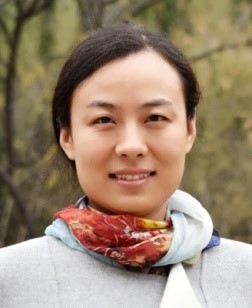 | Prof. Haixia ZhangShandong UniversityProfessor Zhang Haixia, national leading talent, now is a special professor of Shandong University and director of Shandong Province Key Laboratory of Wireless Communication Technology. She has long been committed to research in the field of wireless communication and network, and has made a series of original breakthroughs in large-scale antenna technology, optimal management of wireless resources, and the theory of data-assisted intelligent communication network, etc., and has led a team to explore the application of 5G key technologies in industrial Internet of Things, intelligent manufacturing She has also led her team to explore the application of 5G key technologies in industrial IoT, smart manufacturing and other fields, and has made significant contributions to the development of wireless communication technology and 5G-enabled vertical industries.2022 In July, Professor Zhang Haixia was awarded the 17th China Young Women Scientist Award. |
| Prof. Dusit (Tao) NiyatoNanyang Technological University (NTU)IEEE Fellow, IET FellowDusit Niyato is currently a President's Chair Professor in the College of Computing & Data Science (CCDS), Nanyang Technological University, Singapore. He received B.E. from King Mongkuk’s Institute of Technology Ladkrabang (KMITL), Thailand in 1999 and Ph.D. in Electrical and Computer Engineering from the University of Manitoba, Canada in 2008. Dusit's research interests are in the areas of distributed collaborative machine learning, Internet of Things (IoT), edge intelligent generative AI and AI-generated content (AIGC), mobile and distributed computing, and wireless networks. Dusit won the IEEE Vehicular Technology Society Stuart Meyer Memorial Award, and the IEEE Communications Society (ComSoc) Best Survey Paper Award, IEEE Asia-Pacific Board (APB) Outstanding Paper Award. Currently, Dusit is serving as Editor-in-Chief of IEEE Communications Surveys and Tutorials (impact factor of 34.4 for 2023), an area editor of IEEE Transactions on Vehicular Technology, editor of IEEE Transactions on Wireless Communications, associate editor of IEEE Internet of Things Journal, IEEE Transactions on Mobile Computing, IEEE Wireless Communications, IEEE Network, IEEE Transactions on Information Forensics and Security (TIFS), IEEE Transactions on Cognitive Communications and Networking (TCCN), IEEE Data Descriptions, IEEE Transactions on Services Computing, IEEE Communications Magazine, and ACM Computing Surveys. He was also a guest editor of IEEE Journal on Selected Areas on Communications. He is the Members-at-Large to the Board of Governors of IEEE Communications Society for 2024-2026. He was named the 2017-2023 highly cited researcher in computer science. He is a Fellow of IEEE and a Fellow of IET. |
| Prof. Zhengyuan XuUniversity of Science and Technology of ChinaProf. Zhengyuan Xu received his B.S. and M.S. degrees in electronic engineering from Tsinghua University, China, in 1989 and 1991, respectively. From 1991 to 1996, he was with Tsinghua Unisplendour Group Corporation as a system engineer and department manager. He received his Ph.D. degree in electrical engineering from Stevens Institute of Technology, USA, in 1999. Afterwards, he became an assistant professor, tenured associate professor and full professor successively at University of California at Riverside and later a full professor at Tsinghua University before he joined University of Science and Technology of China in 2013, where he is now a chair professor. He is the founding director of the multi-campus Center for Ubiquitous Communication by Light, University of California, and founding director of Wireless-Optical Communications Key Laboratory of Chinese Academy of Sciences. He is a distinguished expert, chief scientist of the National Key Basic Research Program of China, and National Key Research and Development Program of China. His research focuses on Petahertz communications, optical wireless communications, mobile networking, artificial intelligence, wireless big data, sensing, ranging and localization. He has published over 400 international journal and conference papers, co-authored 3 books, and has been authorized more than 30 invention patents. He has been on the Elsevier annual list of Most Cited Chinese Researchers since 2014 and received more than 13000 Google Scholar citations. He has served as an Associate Editor for different IEEE/OPTICA journals and a founding chair of the First IEEE Workshop on Optical Wireless Communications in 2010. |
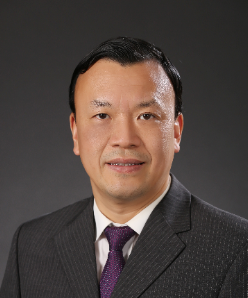 | Prof. Zhaocheng WangTsinghua UniversityIEEE Fellow, IET FellowProf. Zhaocheng Wang is currently a Full Professor with Department of Electronic Engineering, Tsinghua University. He was previously the Director of Broadband Communication Key Laboratory, Tsinghua National Laboratory for Information Science and Technology from 2012 to 2019, and is currently the Director of Broadband Wireless Communication and Signal Processing Laboratory. He is a Highly Cited Researcher (Clarivate Analytics), a World’s Top 2% Scientist (Stanford University), a Fellow of the IEEE, a Fellow of the AAIA, a Fellow of AIIA and a Fellow of the IET. Prof. Wang’s research interests include wireless communications and AI-empowered wireless communications. He is internationally well-known for a large number of high-quality original granted patents and publications in high-impact journals. He holds 66 granted U.S. patents/European patents (23 of them as the first inventor). Several granted patents have been regarded as standard essential patent (SEP) by a plurality of international standards (e.g. 4G/5G wireless systems, WiFi, DVB-T2, etc.). Prof. Wang has published over 300 peer-reviewed journal papers, 17 of which have been selected as Clarivate Analytics ESI highly cited papers, 9 of which received Best Paper Awards, including 2020 IEEE ComSoc Leonard G. Abraham Prize (Best Paper Award of IEEE Journal of Selected Areas in Communications), 2018 IEEE ComSoc Asia-Pacific Outstanding Paper Award, 2016 IET Premium Award (Best Paper Award of Electronics Letters), 2016 IEEE Scott Helt Memorial Award (Best Paper Award of IEEE Transactions on Broadcasting), and several Best Paper Awards from renowned international conferences. He has garnered in excess of 23000 Google citations and his H-index is 71. |
